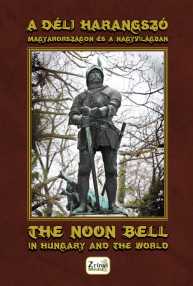Visy Zsolt

A déli harangszó Magyarországon és a nagyvilágban The Noon Bell in Hungary and the World
2013. március 1. 14:34
Törvényszerű és természetes, hogy az évszázadokkal korábbi események a múlt ködébe vesznek. Vannak azonban olyan sorsformáló és sorsfordító események, amelyekre még a kései utókor is szívesen gondol. Ezek egyikére a keresztény templomok legtöbbjében delente megkonduló harangszó is emlékeztet, és noha igen sokan tudják azt, hogy Nándorfehérvár/Belgrád váránál 1456-ban sikerült feltartóztatni a hódító oszmán sereget, egyre kevesebben tudják, hogy ez a harangszó erre emlékeztet. Pedig így van. Az oszmán fenyegetés elhárítására III. Callixtus pápa keresztes hadjáratot hirdetett, majd 1456 júniusában meghozta híres rendeletét a harangok megszólaltatásáról. Az eredetileg mozgósításra felcsendülő harangszó egy szűk hónapon belül, július 22-re a diadalt világgá hirdető harangszóvá vált, hiszen ekkorra sikerült a magyar sereget vezető Hunyadi Jánosnak és a kereszteseket fanatikus lelkesedésével magával ragadó Kapisztrán Jánosnak a nagy győzelmet kivívni. Ennek hírére a pápa örök időkre elrendelte a harangozás szokásának fenntartását. A nándorfehérvári győzelem nemcsak a Magyar Királyság elsősorban magyar, szerb, román, horvát, szász, szlovák népeinek a sikerét, hanem az ötszázötvenöt évvel ezelőtti európai összefogást is dicséri.

A déli harangszó Magyarországon és a nagyvilágban The Noon Bell in Hungary and the World
2013. március 1. 14:34
Regularly and naturally, events of bygone centuries vanish into the mist of the past. Some of them, however, are so formative and decisive that posterity recalls them readily. In most Christian churches, one of these events is recalled by the ringing of the bell each day at noon, and although many people know that the advance of the conquering Ottoman army was successfully halted at the castle of Nándorfehérvár/Belgrade in 1456, there are less and less who are aware that the noon bell is a reminder of this event. Yet this is the case indeed. To counter the Ottoman threat, Pope Callixtus III proclaimed a crusade, then in June 1456 issued a famous decree on ringing the bells. Originally a signal for mobilization, in less than a month, by 22 July the noon bell became the signal of the victory around the world. By that day, John Hunyadi, the leader of the Hungarian army and John of Capistrano, a preacher who fired the crusaders with enthusiasm through his fanatic zeal, were able to secure the great victory. On hearing about it, the Pope ordered the custom of the noon bell to be observed forever. In addition to being the joint success of the Hungarians, Serbs, Romanians, Croatians, Saxons and Slovaks living in the Kingdom of Hungary, the Nándorfehérvár victory is a excellent example of cooperation in Europe 555 years ago.
